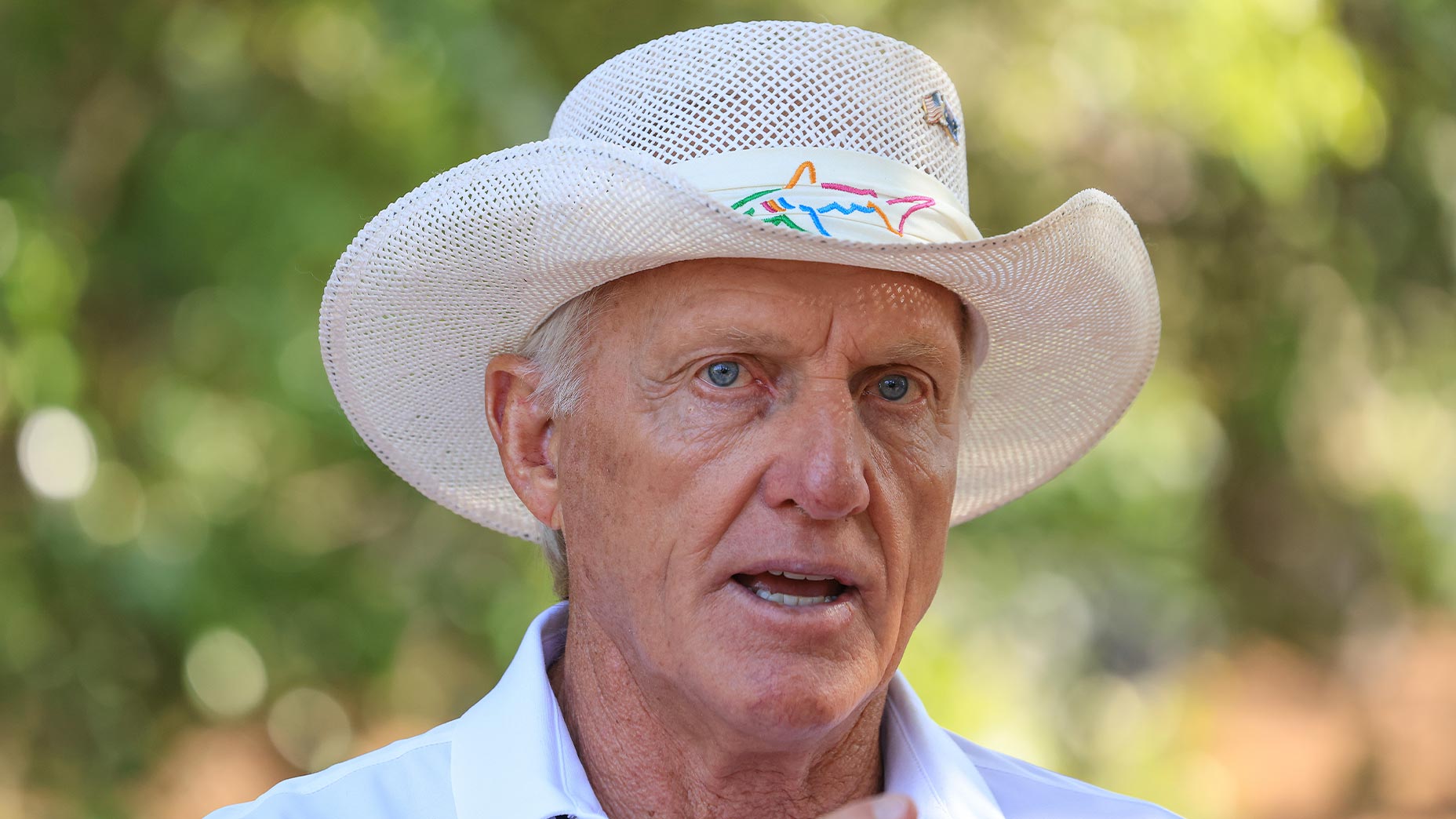
Greg Norman made a surprising admission about LIV’s golf
Getty Images
LIV Golf has a bit of a thing with the number 54.
The name LIV, you might remember, is derived from the Roman numeral for 54, which also happens to be the number of holes played by the Saudi-backed tour in its competitions. This has been a central piece of LIV’s “revolutionary” identity from the beginning — the idea that tournaments were too long and stars were too often removed from those fields with a cutline. And so, the league’s theory went, by removing the cutline and trimming tournaments to 54 holes with a shotgun start, we could remove all of the worst parts of golf tournaments and keep all of the best.
Now, it seems, that love affair has grown a bit stale. As the league ponders a future that could include a treaty or even reunification with the PGA Tour, LIV’s executives are also coming to grips with the suggestion that some of the league’s core tenets could be changed as part of that reunification. One of the biggest of those suggested changes has been extending the league’s tournaments to 72 holes, which some players have advocated for as a means of helping LIV achieve OWGR status or, more broadly, for keeping the tour in line with the remainder of golf’s biggest events, which are also contested over 72 holes.
On Wednesday at LIV’s latest event in Adelaide, commissioner Greg Norman was asked about these changes specifically — and he delivered a surprising response.
“I think from LIV’s perspective, we’re very open-minded about [moving to 72 holes],” he said. “But you’ve got to understand there’s economic impact about putting television on for 72 holes.”
Open-minded! Sure, it’s not “enthusiastic about” or “changing to” — but Norman’s comments nonetheless mark a noticeable territorial shift for the league in its public-facing comments. Even if shifting to 72 holes would result in a relatively palatable solution for all parties involved, Norman and co. have been reticent to comment publicly about changes that could bring the league more in line with its PGA Tour counterparts. Norman’s decision to comment publicly about it on Wednesday — in the same presser LIV competitor Jon Rahm named PGA Tour events he would enjoy competing in — indicates the league is thinking seriously about a future that looks different than its present.
“It’s a great conversation to have. We will continue to have that conversation going forward,” Norman said. “But we sit back and say, what value do we get on putting on television on Thursday? Now, how do we build out in the future? How do we get more people to the golf course? Maybe it is Thursday and you allow another 30,000 people coming in on a Thursday.”
It’s hard to know exactly what the commissioner means by the “economic impact” of extending to 72 holes. On one hand, it would be more expensive to pay the league’s television crews and production costs for an extra day of tournament play. But the value of putting an event on television is typically considerably more than the cost of putting it on TV, and the same could be said about the cost of an extra day of tournament staff against the cost of tickets. (Sure, LIV has had its issues landing paid TV partners over the years, but surely some outlet would sell enough advertising to justify paying LIV enough to cover the cost of production.)
But economic concerns are only one piece of the puzzle, Norman said. They chose 54 holes because they like the speed and urgency it brings to the competition.
“Sometimes you can have an average first round and then you come back and shoot a 64 and get yourself back into it, now you’re into the weekend,” Norman said. “If you really don’t play well on Friday here, you have a hard time because the quality of play here is so high. It’s a question you should ask [the players]. It is intense pressure on it straight away because you have to perform immediately right off the bat.”
Of course, that’s an interesting counterpoint — and one that seems to underline the challenge facing LIV players in transitioning from normal tournament play to the major championships. But it speaks to the fact that LIV is having these conversations in the first place. And given the drawn-out nature of the negotiations between the PGA Tour and PIF, it could also be a sign that those talks are progressing.
“There are things that we sit back and look at to see, what is the most optimal solution to make this a better and better and better event?” Norman said. “And 72 holes is discussed.”
As for a name change to LXXII? Well, we’ll leave that up to the man in charge.








